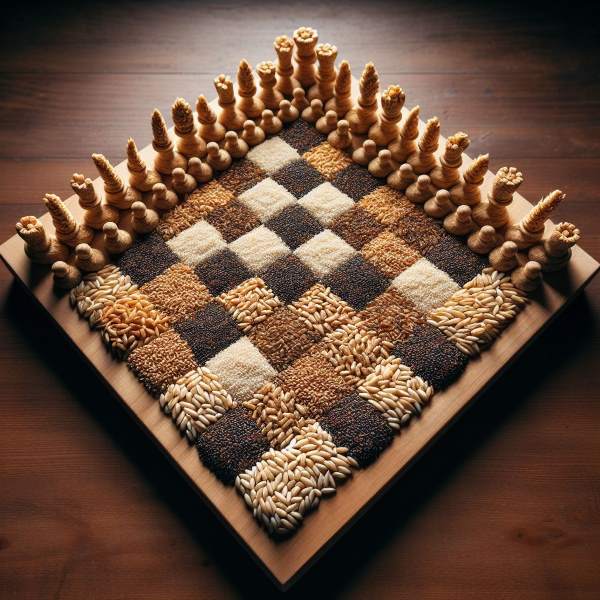One of the most famous historical examples of the compounding effect comes from the legend of chess and grains of wheat, often attributed to ancient India.
Once upon a time, there was a wise and benevolent ruler in ancient India who loved to play chess. One day, a humble farmer from his kingdom presented himself before the ruler and offered to teach him the game of chess. Impressed by the farmer's skills, the ruler asked what reward he desired in return.
The farmer, being wise, asked for a seemingly modest reward: a single grain of wheat, doubled for each square of the chessboard. Pleased by the farmer's modest request, the ruler agreed immediately.
As the chessboard contains 64 squares, the request seemed manageable at first. However, as the ruler's advisers began to calculate the reward, they realized the staggering implications of compounding.

On the first square of the chessboard, the farmer would receive one grain of wheat. On the second square, he would receive two grains (doubling the amount from the previous square). On the third square, he would receive four grains, then eight on the fourth, and so forth, doubling the amount with each square.
As they progressed through the squares, the number of grains grew exponentially. By the time they reached the halfway point of the chessboard, the farmer would receive millions of grains of wheat. And by the time they reached the 64th square, the final total would be an astronomical number, far exceeding the total wheat production of the entire kingdom for many years to come.
This simple yet profound story illustrates the power of compounding. What starts as a seemingly small amount can grow into something truly extraordinary over time, given the right conditions and enough patience. It serves as a timeless reminder of the importance of understanding and harnessing the compounding effect in various aspects of life, whether in finance, investments, or even personal growth.
Have you ever tried using this compound interest calculator?
